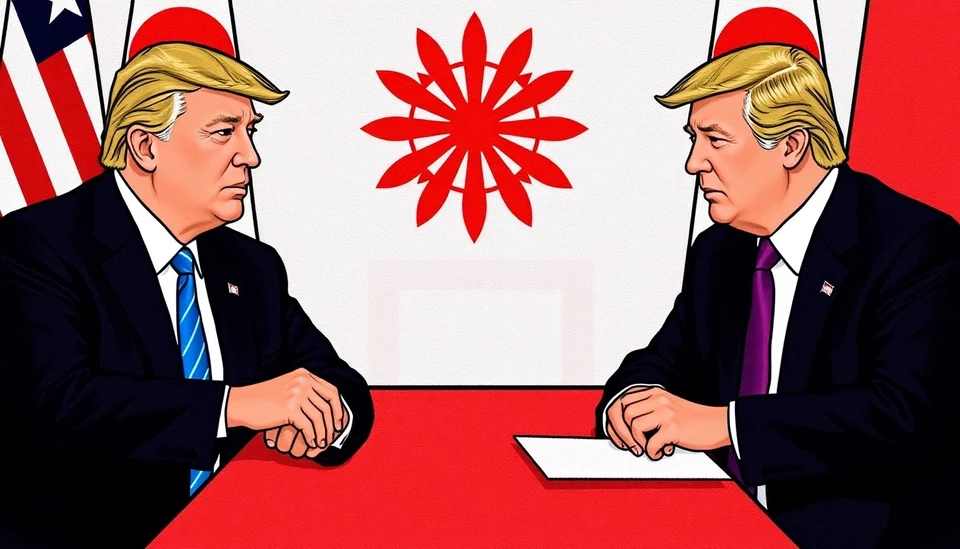
Japan has emerged as a critical battleground for Donald Trump's administration as it seeks to redefine trade relationships with key allies. The intricate negotiations surrounding tariffs and trade balances with Japan serve as a significant litmus test for Trump's approach to bilateral agreements and his willingness to impose pressures similar to those seen with other nations.
The discussions, which have gathered momentum recently, revolve around the impending trade deal that could drastically reshape U.S.-Japan economic relations. Trump's administration aims to decrease the trade deficit with Japan, which has historically favored the U.S. by allowing Japanese imports into the American market. However, the strategy may require heavy measures, including imposing tariffs that could strain relations between the two nations.
Key stakeholders in the negotiations are keeping a vigilant eye on the proceedings. On one hand, the Japanese government is under pressure to protect its domestic industries, which may be adversely affected by such tariffs. On the other hand, Trump’s negotiation tactics, characterized by a hardline approach, could lead to unexpected concessions from Japanese authorities, potentially paving the way for a more favorable trade agreement for the U.S.
Despite the looming threat of tariffs, the Japanese economy relies heavily on exports, and its leaders are eager to avoid a trade war that could have lasting repercussions. The upcoming negotiations will require adept maneuvering to ensure the protection of Japanese interests while also addressing the demands from the U.S. administration.
In addition to addressing trade balances, the negotiations also touch upon crucial sectors such as agriculture and technology, which could see modified access or reduced tariffs. The stakes are significantly high, as agriculture is a critical area where U.S. farmers are seeking improved access to Japanese markets, necessitating careful discussions to foster mutual benefits.
These negotiations are not merely an economic debate; they carry significant geopolitical implications. The outcome could signal to other nations how the U.S. intends to approach future trade agreements and whether Trump’s administration will adopt a multinational approach or pursue bilateral negotiations on a case-by-case basis.
The Trump administration's strategy in Japan could potentially set the tone for upcoming trade discussions with other countries, including China and European nations, as the president grapples with the broader objective of reshaping global economic dynamics favorably toward American interests.
As the deadline for the negotiations approaches, global markets remain on edge, anticipating a ripple effect across various sectors based on the outcomes reached. Whether Trump's trade strategy succeeds or falters in Japan may very well determine the future of his administration’s economic policies as a whole.
Ultimately, the developments in U.S.-Japan trade talks promise to be a critical moment in Trump's tenure, showcasing his administration's capacity to handle complex international relationships while pursuing an assertive trade agenda.
Stay tuned as these negotiations unfold, which will likely have a profound impact on international trade dynamics and alliances in the years to come.
#JapanTradeNegotiations #DonaldTrump #USJapanRelations #TradeDeals #EconomicPolicy #Tariffs #BilateralTrade
Author: Laura Mitchell




